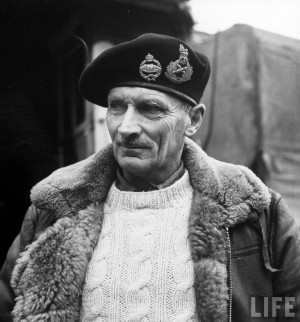 If Americans could get over his depiction in Patton (1970), they might learn to like British General Bernard Montgomery (1887-1976), or at least find him endearing. ((Or as he preferred to be called, Field-Marshal Viscount Montgomery of Alamein. Bear with me, Americans struggle with long titles.))
If Americans could get over his depiction in Patton (1970), they might learn to like British General Bernard Montgomery (1887-1976), or at least find him endearing. ((Or as he preferred to be called, Field-Marshal Viscount Montgomery of Alamein. Bear with me, Americans struggle with long titles.))
I got over my hate and I read his works every now and then. In A History of Warfare, he provides a chronological overview of war, sprinkled with his commentary throughout. The latter is what is interesting.
Consider Montgomery’s commentary on Oliver Cromwell (1599-1658), the hardline puritan who rose to brilliant military commander during the English Civil Wars (1642-51) and eventually became Lord Protectorate (r. 1653-58), or “military dictator.”
Montgomery dedicates several pages describing Cromwell’s rise to power, as well as his military achievements, providing analysis of his organization of armies, strategy in war, and tactics on the battlefield. However, he freely admits that Cromwell’s “military courage and caution turned to political blustering and hesitancy.” ((Field-Marshal Viscount Montgomery of Alamein, A History of Warfare (Cleveland: The World Publishing Company, 1968), 286.))
At the end of his narrative, Montgomery laments, “It is sad that Cromwell should be remembered more for his unfortunate dictatorship than for his idealism, his courage, and his genius as a trainer and commander of cavalry and as a strategist.” ((Ibid.))
Rarely does an author show his true colors for a historical figure so blatantly. However, Montgomery takes it a step further, “Sir Winston Churchill once referred to me as a Cromwellian figure, because he said, I always tried both to praise the Lord and to pass the ammunition.” ((Ibid., 282.)) Quite simply, Montgomery fancies himself a Cromwell-like figure without all the bad stuff.
It is easy to forgive his hero worship, because it is so refreshingly honest.
